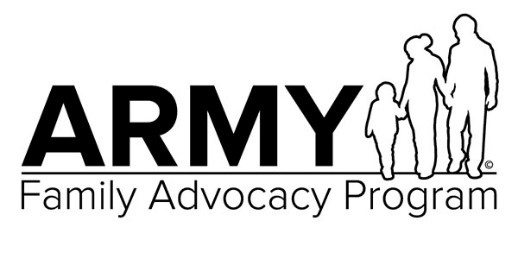
Family Advocacy Program
To contact your
BDE Family Advocacy Program Coordinator call: 1-800-255-2769
USAREC Family Advocacy Program
The U.S. Army Family Advocacy Program (FAP) helps Soldiers and their Families recognize and prepare for the unique challenges of military lifestyles. We are dedicated to the prevention domestic abuse, child abuse, and neglect of Soldiers and their Families through offering education, prompt reporting, investigation, intervention, and treatment.
Domestic Violence
What is domestic violence? The National Coalition Against Domestic Violence describes domestic violence as “the willful intimidation, physical assault, battery, sexual assault, and/or other abusive behavior as part of a systematic pattern of power and control perpetrated by one intimate partner against another. It includes physical violence, sexual violence, psychological violence, and emotional abuse.”
Reporting Options
Unrestricted Reporting: Official investigation using current reporting channels, e.g., chain of command, Family Advocacy Program (FAP), or law enforcement
Restricted Reporting: Allows a victim of domestic abuse to disclose the details of his or her abuse to specifically identified individuals and receive medical treatment and victim advocacy services without requiring that notice be provided to the victim's or alleged offender's commander or law enforcement.
Victims of domestic abuse who desire restricted reporting under this policy must report the abuse to one of the following specified individuals:
- Domestic Abuse Victim Advocate
- Family Advocacy Program Clinician
- Your Healthcare Provider
If you need help, please call the National Domestic Violence Hotline at 1-800-799-7233. You should also contact your BDE Family Advocacy Program Coordinator or nearest installation Family Advocacy Program. Search for your nearest installation Domestic Abuse Victim Advocate HERE
Child Abuse What is child abuse? The Child Welfare Information Gateway describes child abuse as, “Any recent act or failure to act on the part of a parent or caretaker which results in death, serious physical or emotional harm, sexual abuse or exploitation; or an act or failure to act which presents an imminent risk of serious harm.” Child Abuse is categorized as follows: physical, emotional, sexual and neglect.
To report suspect abuse or neglect, call your local Child Protective Services or the National Child Abuse Hotline at 1-800-422-4453. You should also contact your BDE Family Advocacy Program Coordinator or nearest installation Family Advocacy Program. Search for your nearest installation Family Advocacy Program HERE
If you fear a child is in immediate danger, call 911.
Transitional Compensation Program
What is the Transitional Compensation Program?
The Transitional Compensation (TC) Program is a Congressionally authorized program for abused Family members of military personnel. The legislation authorizes temporary payments for Families in which the active-duty Soldier has been court-martialed (with a qualifying sentence) or is being administratively separated for a Family member abuse offense. The TC Program offers benefits and entitlements for 12-36 months to eligible Family members. During this period, beneficiaries are provided temporary financial compensation and are eligible to receive medical care, including behavioral health services, as TRICARE beneficiaries. Recipients will also have commissary and exchange privileges during this period.
Am I Eligible for the TC Program?
TC may be authorized for a spouse or former spouse of an active-duty Soldier who has received official notification of an administrative separation or court-martial conviction (with a qualifying sentence) for domestic abuse, child abuse, or child sexual abuse. Service member's children residing in the home at the time of the abuse may also qualify for TC.
How Much Financial Assistance Will I Receive?
Monthly payments are made to the eligible Family member at the rate set by law and vary based on Family size.
Can I Lose or Forfeit the TC Benefits?
Yes. If a spouse receiving payments remarries, payments cease as of the date of the remarriage. If the Soldier cohabitates with the eligible spouse or child receiving compensation, payments will cease. Speak with your TC point of contact for additional information.
How can I apply for the TC Program?
Contact your local Victim Advocate, Family Advocacy Program Manager, or Victim Witness Liaison for assistance in completing an application for Transitional Compensation. This individual will also help you obtain the required accompanying documentation, if you are eligible for TC payments. Search for your nearest installation Domestic Abuse Victim Advocate HERE
Family Advocacy Program Resources
FAP Wellness Trainings offered by your BDE FAPC:
· Conflict Resolution
· Creating Boundaries
· Intimate Partner Violence Bystander Training
· Parenting Personalities
· Actively Parenting Teens
THRIVE Parenting course: developed to empower parents of children, 0 to 18 years, through education and skill development around evidence-informed strategies regarding positive parenting, stress management, and health promotion.
MilitaryOneSource: Confidential non-medical counseling provides service members and their loved ones with resources and support to address a variety of issues and build important skills to tackle life’s challenges.